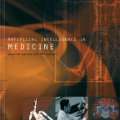Recently, several multi-modal models have been developed for joint image and language understanding, which have demonstrated impressive chat abilities by utilizing advanced large language models (LLMs). The process of developing such models is straightforward yet effective. It involves pre-training an adaptation module to align the semantics of the vision encoder and language model, followed by fine-tuning on the instruction-following data. However, despite the success of this pipeline in image and language understanding, its effectiveness in joint video and language understanding has not been widely explored. In this paper, we aim to develop a novel multi-modal foundation model capable of perceiving video, image, and language within a general framework. To achieve this goal, we introduce Valley: Video Assistant with Large Language model Enhanced ability. Specifically, our proposed Valley model is designed with a simple projection module that bridges video, image, and language modalities, and is further unified with a multi-lingual LLM. We also collect multi-source vision-text pairs and adopt a spatio-temporal pooling strategy to obtain a unified vision encoding of video and image input for pre-training. Furthermore, we generate multi-task instruction-following video data, including multi-shot captions, long video descriptions, action recognition, causal relationship inference, etc. To obtain the instruction-following data, we design diverse rounds of task-oriented conversations between humans and videos, facilitated by ChatGPT. Qualitative examples demonstrate that our proposed model has the potential to function as a highly effective multilingual video assistant that can make complex video understanding scenarios easy. Code, data, and models will be available at https://github.com/RupertLuo/Valley.
翻译:暂无翻译




